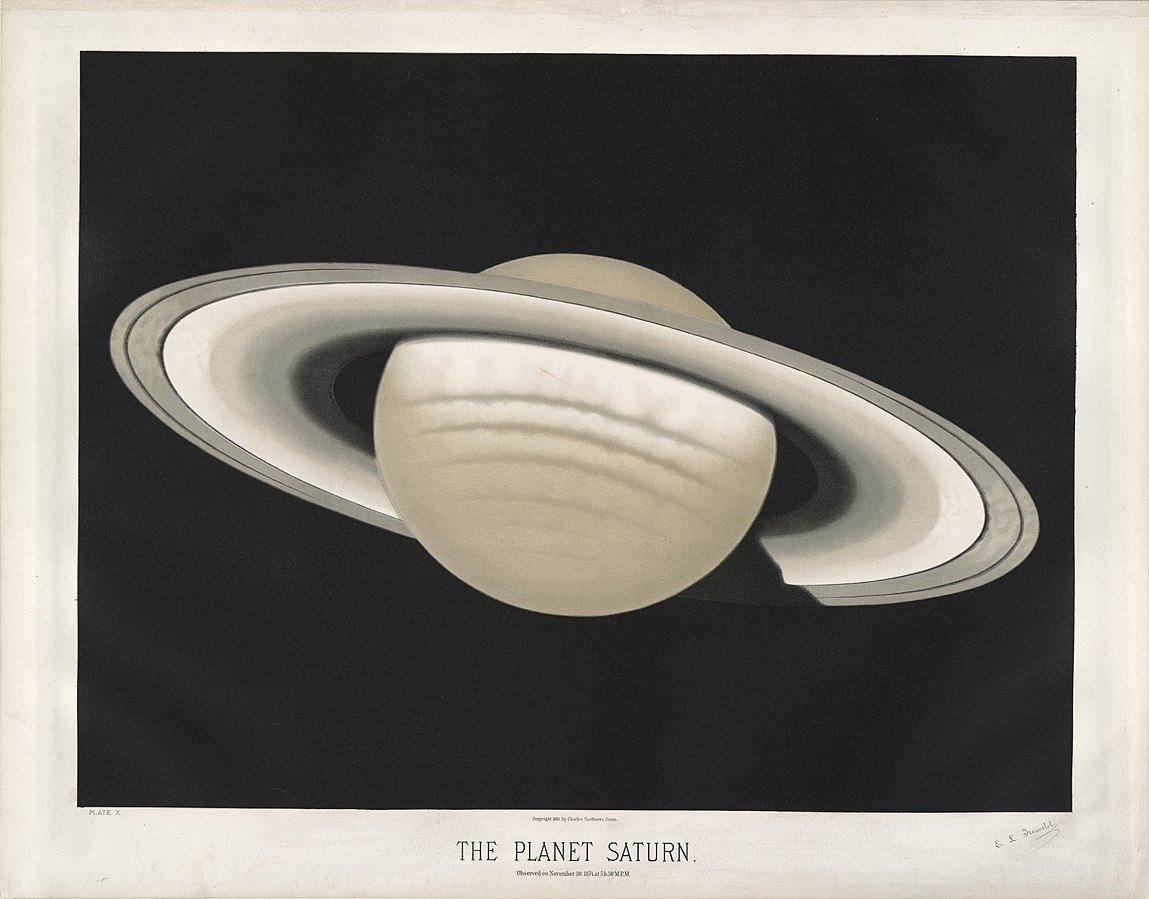Warm and dry lately. Very warm sometimes. Luckily, our deck has an umbrella for shade.
Spring on Jupiter or Mars? Never mind, here’s summer on Saturn. At least in its northern hemisphere. Seasons are long there are probably don’t involve relaxing moments on back yard decks. Anyway, a thing of great beauty. “This image is taken as part of the Outer Planets Atmospheres Legacy (OPAL) project,” the NASA text says. “OPAL is helping scientists understand the atmospheric dynamics and evolution of our solar system’s gas giant planets. In Saturn’s case, astronomers continue tracking shifting weather patterns and storms.”
“This image is taken as part of the Outer Planets Atmospheres Legacy (OPAL) project,” the NASA text says. “OPAL is helping scientists understand the atmospheric dynamics and evolution of our solar system’s gas giant planets. In Saturn’s case, astronomers continue tracking shifting weather patterns and storms.”
For contrast, an older observation of Saturn. Another thing of beauty.
 Plate X from The Trouvelot Astronomical Drawings 1881-1882, these days posted at Wikimedia.
Plate X from The Trouvelot Astronomical Drawings 1881-1882, these days posted at Wikimedia.
Closer to home, at Schaumburg Town Square.

 The sculpture is “Rubber Tipped Crane,” by Christine Rojek. Installed in 2012. Lilly said she hadn’t remembered seeing it before, but I did. Rojek also did “Ecce Hora” not far away.
The sculpture is “Rubber Tipped Crane,” by Christine Rojek. Installed in 2012. Lilly said she hadn’t remembered seeing it before, but I did. Rojek also did “Ecce Hora” not far away.
Our latest Star Trek episode — we’re still watching about one a week — was “Squire of Gothos,” an early example of kidnap Kirk (and maybe Spock and others) and make him (them) outfight or outwit some adversary. This was a particularly good example of that kind of plot, including a deus ex machina ending that actually worked pretty well.
Our latest movie: The Shining. I hadn’t seen it since it was new. I remember it drew in some crowds in the summer of ’80, because when we got to the theater, only front-row seats were available. So I got to experience the Overlook Hotel in all its surreal, horror-infused glory as an enormous wall of light towering over me.
Always good to watch Jack Nicholson do what he does, in this case descend into homicidal madness. I also thought Shelley Duvall’s parallel track — her increasing freaked-out-ness, you might say — was on target. Her character has been mocked as whiny and weak, but she and her son survived.
So the movie holds up fairly well (and I don’t care at all what Stephen King thought of it). Still, not Kubrick’s best. What could possibly top Dr. Strangelove or 2001? But worth watching again after 40 years.
